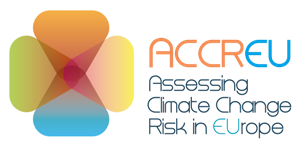
As a part of the ACCREU research project, University of Graz is organizing a stakeholder workshop on Climate risk and adaptation strategies for supply chains and transport infrastructure, to be held online (Zoom) on July 2nd 2025 at 13:00-15:00 CEST.
Climate change poses growing risks to both transport infrastructure and industry supply chains, threatening disruptions to trade corridors and critical business operations. How can infrastructure managers, policymakers, and firms collaborate to strengthen resilience while avoiding maladaptation? This interactive workshop brings together key stakeholders from around the EU to explore climate adaptation strategies relevant for both supply chains and the transportation sector.
In the first part of the workshop, we will present recent research outcomes of the ACCREU project. Drawing on two case studies, one on transport infrastructure in Austria and one on supply chain resilience in the electronics and semiconductor sectors, we will examine real-world adaptation challenges. In the second part, we will discuss, enrich and validate the research outcomes with your input.
Through a mix of brief presentations and interactive breakout discussions, participants will create a shared understanding of the current climate risks and adaptation challenges. The workshop will directly contribute to research of the ACCREU project’s development of an adaptation decision type (ADT) for transport and supply chains, helping inform future strategies and policies.
We hope you will be able to contribute your expertise and perspectives to this timely and important discussion.
Please RSVP via this link if interested.
An agenda and link to the zoom meeting will be provided prior to the event.
ACCREU workshop series are organised according to the different ‘adaptation decision type’ (adaptation themes). These workshops will explore the scalability of adaptation strategies, as well as key barriers and opportunities.
